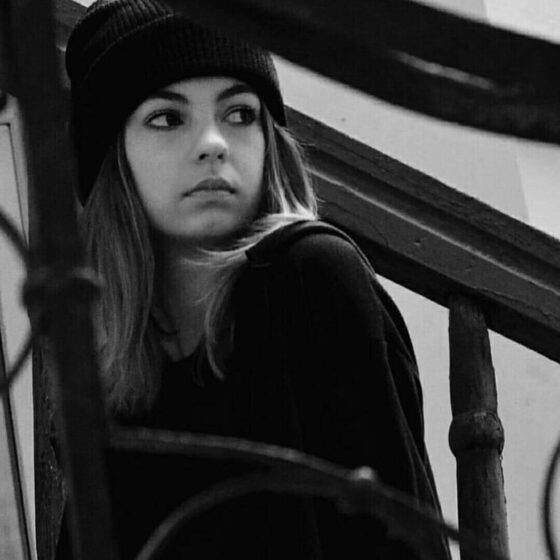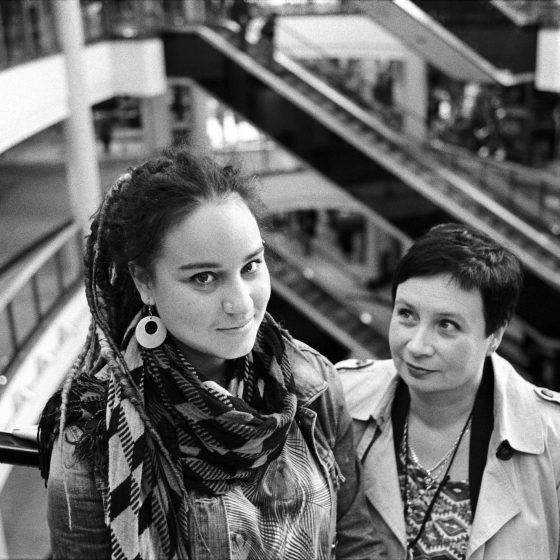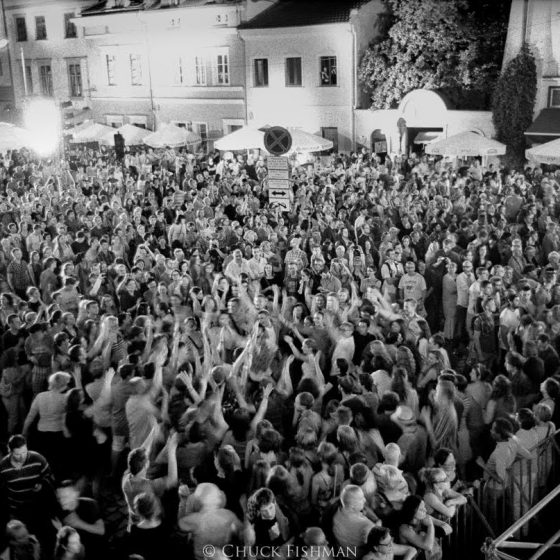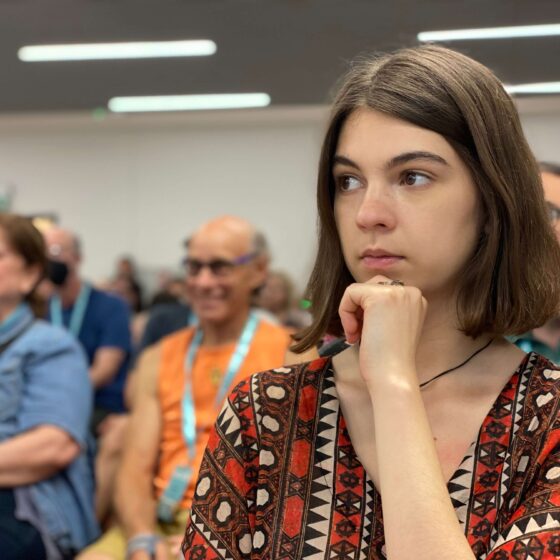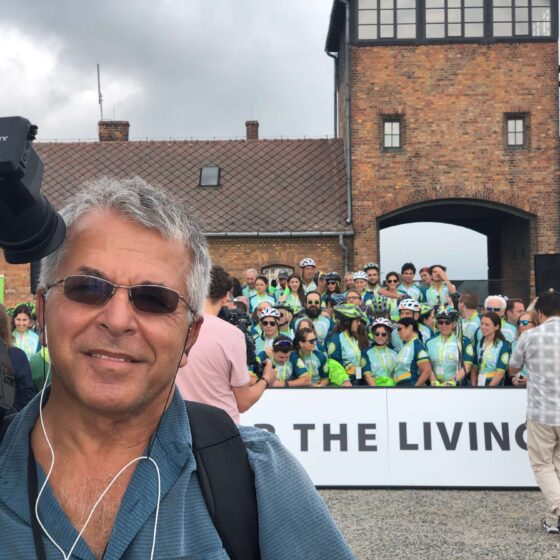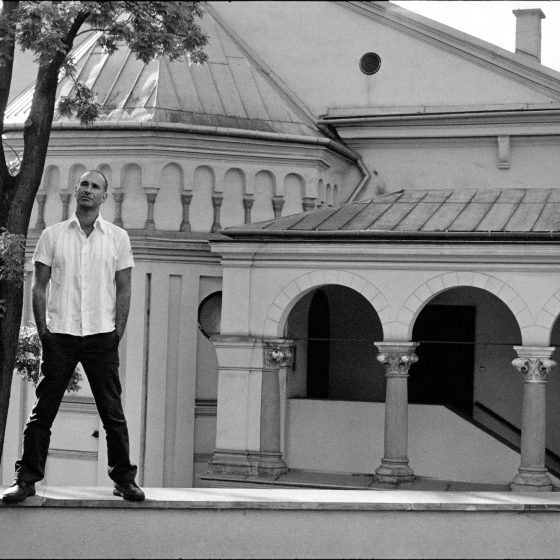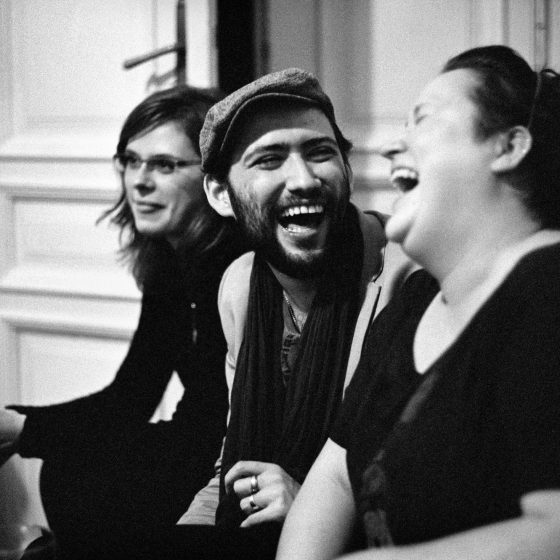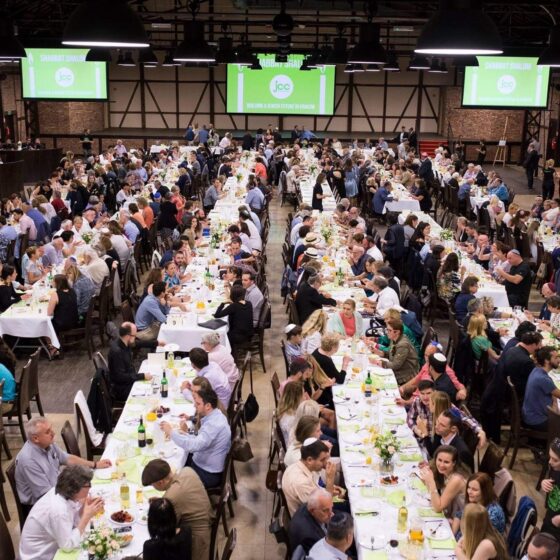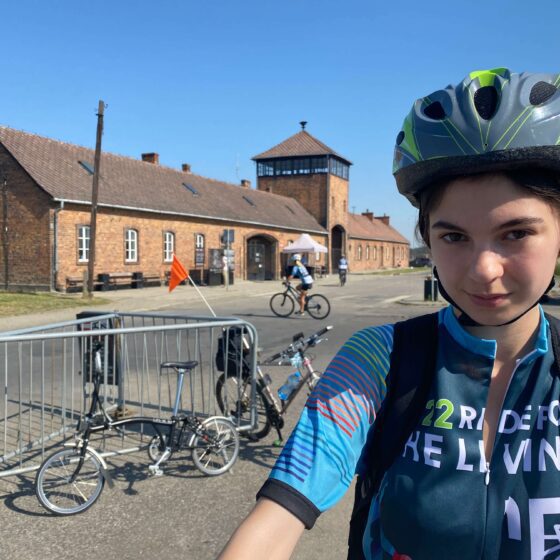Hidden Heritage: A Jewish Awakening in Krakow
Film in post-production
Hidden Heritage: A Jewish Awakening in Kraków is a groundbreaking feature documentary about the remarkable revival of Jewish life in Kraków, the second largest city in Poland. Read more below.

LOGLINE AND SYNOPSIS
TOPIC SUMMARY AND SIGNIFICANCE
ARTISTIC APPROACH
FROM THE DIRECTOR
PROJECT STATUS
PRODUCERS
ADVISORY BOARD
ARTICLES
LOGLINE AND SYNOPSIS
Hidden Heritage: A Jewish Awakening in Kraków is a groundbreaking feature documentary about the remarkable revival of Jewish life in Kraków, the second largest city in Poland. This revival is seen through the eyes of Polish Jews who, despite the current rise of antisemitism, are re-discovering their Jewish identity and connections to Judaism, decades after the Holocaust and the subsequent Communist regime in Poland eliminated the Jewish population of the country almost entirely. To illustrate this historically unprecedented revival of Jewish life taking place in Poland, we focus on following the journey of a young Polish Jewish woman living in Kraków.
The film will also deal with the more challenging environment for Jews in the Poland of today. For many years, it was considered taboo in Poland to make public statements against Jews; in today’s Poland that taboo was lifted. In addition, since the current government took power in 2015, there are two very distinct trends in Poland: either people are flaunting their Jewishness or once again hiding it. We will try to examine all sides of what it means to be Jewish in the Poland of today and going forward, including the likelihood of the revival continuing in light of the current circumstances.
This feature length documentary, which is in the pre-production stage, is planned to be released in the Spring of 2021. A trailer for the documentary is in development.
Synopsis
Against all odds, including the rise of antisemitism, and the still-unprocessed Polish Jewish Holocaust history, a remarkable renaissance of Jewish life in Poland is now underway. Our story concentrates on the Jewish revival in Kraków, the former capital of Poland. Once a royal residence, Kraków was also the intellectual and cultural hub of Poland and a leading center of Jewish life and scholarship dating back to the 12th century. Before World War II, over 60,000 people, one fourth of Kraków’s population, were Jewish, and there were about 120 active synagogues and houses of prayer in Kraków. After Nazi Germany invaded Poland in 1939, the Jewish residents of Kraków were forced into a ghetto and later sent to death camps in Bełżec and Auschwitz. Ultimately over three million Polish Jews were killed in the Holocaust, more than 90% of Poland’s Jewish population. Less than 5,000 Jews in Kraków were estimated to have survived. Of those, many left Poland and moved to the United States and Israel. Others departed after facing post-war antisemitism. In 1968, under Communist rule, half of Poland’s entire remaining Jewish population were stripped of citizenship and forced out of the country. Afterwards, Jewish life went underground, and Jewish involvement became a taboo subject. Surviving Jewish children of those who stayed generally were not informed of their families’ Jewish heritage and were often raised Catholic.
In 2002, His Royal Highness the Prince of Wales, now His Majesty King Charles III, visited Kraków and learned of the need for a gathering place for the remaining members of the Kraków Jewish community. On his return to London, the then Prince Charles met with World Jewish Relief (WJR), a London-based charity. With his support and patronage, the Jewish Community Centre (JCC) of Kraków opened in 2008. “I think it’s really miraculous what’s going on in Kraków,” says Jonathan Ornstein, who has been the executive director of the JCC Kraków since it opened. “Young people are finding out that they have Jewish roots, that their families hid during the Communist era that followed World War II…They are choosing to get involved, to build this Jewish future with others who grew up in Poland but only recently discovered their background.” According to Ornstein, “Our primary purpose is to welcome people with Jewish roots back into the Jewish world.” This includes the woman Ornstein met in Kraków and recently married. In 2017, the JCC Kraków opened the first pluralistic Jewish nursery and pre-school for 10 children, another major milestone.
To explore the revival of Jewish life that is happening in Poland, we are focusing on young Polish Jews living in Kraków and their journey of rediscovery. The protagonist of the film is 26-year-old Zofia (“Zosia”) Hartman, whose story we follow in the film for several years. Zosia has agreed to be a participant in the film and has given us continuing access to her everyday life. We filmed her making breakfast at her apartment in Kraków, at music rehearsal at the Music School, meeting and talking to friends and dancing on Szeroka Street during the final event of the 29th Kraków Jewish Culture Festival (2019). A drone camera, which followed Zosia on the streets of Kraków, gives viewers a good sense of the geography and scale of Kazimierz, the former Jewish quarter of Kraków, and allows viewers to learn about the city. We filmed Zosia at her current job at the Galicia Jewish Museum as well as entering the JCC Kraków with donations for the Ukrainian war refugees. Thus, our film not only provides insights into one individual’s life but also gives a historical overview of time and space in which the Jewish revival in Poland is taking place.
TOPIC SUMMARY AND SIGNIFICANCE
With the global rise of antisemitism, a film about young people in Poland embracing their Jewish roots is particularly needed, important and relevant. This character-driven narrative will appeal to people interested in history and Jewish identity, to those empathetic to Jewish culture being restored in the wake of tragedy, and to those concerned about rising antisemitism. Since nearly 80% of American Jews have ancestry from Poland (including its prewar territories), this story is emblematic of many other cases of the “hidden Jews of Poland,” and will especially resonate with American Jewry. Many Americans come specifically to Poland to trace their roots and to visit Holocaust sites. A large number are descendants of Holocaust survivors and have given up any possibility of their families’ cultural homelands being restored.
Although the three million Polish Jews who were killed in the Holocaust cannot be replaced, this film shows what can happen when individuals who were disconnected from their Jewish heritage re-embrace their Jewish identity and come together with others to rebuild the Jewish community. By focusing on the lives of young people rediscovering their Judaism, we also seek to understand the Jewish revival in Kraków through a global Jewish lens. Through the creation of this documentary, we hope to provide support for further future Jewish revival both in Kraków and in other hidden Jewish communities in Poland and worldwide that are finding their footing in a complicated world. The film also deals with the viability of the Jewish revival in light of the current circumstances.
By examining all sides of what it means to be Jewish in the Poland of today and tomorrow, this documentary will enlighten American audiences about what is actually happening in Poland, a situation that is quite different from what is commonly believed and understood. It will be an eye-opening and transformative documentary to many. We also hope that it will inspire all who see it to support the revival of Jewish life in Kraków.
ARTISTIC APPROACH
This film is a documentary of many different personal journeys, mixing psychological portraits with fact-finding cinema focusing on the revitalization and rebirth of Jewish life in Kraków and its environs. It is a story about people finding new meaning in lost traditions. These stories are particularly important in the face of increasing antisemitism in the United States, in Europe and in Poland.
Although the historical sources for this film take us back to 1939, this is not a Holocaust film. It is a contemporary story about people who are building new lives and re-discovering their Jewish identities in the very places that their grandparents’ and parents’ lives were destroyed. The creative process includes documenting the activities happening in Kraków that involve our protagonist as well as interviews with other key participants in the revival and various academics, intellectuals, and politicians who provide an analytical commentary. It includes interviews with Janusz Makuch, the Director of the Kraków Jewish Festival, Jonathan Ornstein, the Executive Director of JCC Kraków and Deborah E. Lipstadt, an American historian who is currently serving as the United States Special Envoy for Monitoring and Combating Anti-Semitism, with the rank of Ambassador. The observational scenes and formal interviews will be intertwined with authentic archival footage of never-before-seen footage and photographs of pre-war Jewish life in Kraków, from the Kraków Ghetto and the deportation out of the ghetto to Auschwitz. All such footage will be meticulously selected from archives in the USA, Germany and Poland.
The film will also deal with the more challenging environment for Jews in the Poland of today. For many years, it was considered taboo in Poland to make public statements against Jews; in today’s Poland that taboo was lifted. In addition, since the current government took power in 2015, there are two very distinct trends in Poland: either people are flaunting their Jewishness or once again hiding it. It is hard to believe that there has never been a documentary made about the remarkable revival of Jewish life in Kraków, located only 40 miles from Auschwitz; our proposed film will fill this gap.
FROM THE DIRECTOR
My own personal background and my extensive experience filming documentaries relevant to the Jewish experience make me well suited to tell this particular story. I am an Emmy Award-winning documentary producer and director born in Lublin, Poland to a family with Jewish roots, with over 50 films to my credit, of which a dozen films deal with the themes of Holocaust, Polish-Jewish relationships and Jewish identity.
I am an independent filmmaker, living and working in the United States for the past forty years, solely devoted to documentaries. Since the time I immigrated to the U.S. from Poland, I have directed and produced many films for PBS, HBO and other American TV stations. My independent works, which focus on critical social, environmental and political issues, have won international recognition and have variously received an Emmy award, Cine Golden Eagle award and many Grand Prix and Best Documentaries awards. More about me can be found on my website, www.logtv.com
PROJECT STATUS
We are currently in the post-production stage. A trailer is in development. We have already filmed for seven days in Kraków during the 29th Jewish Culture Festival in June of 2019 and were able to record the footage of the festival as well as other notable events during that period, including the Ride for the Living bicycle ride from Auschwitz to the JCC Krakow. In 2021, we did four days of filming with our main character Zofia Hartman and her family both in Kraków where Zofia lives, Wrocław where her grandma lives and in Warsaw, at the Jewish cemetery, where all her Jewish family is buried. We have finalized our filming with several days in Kraków during the 30th Jewish Culture Festival in June of 2022 and were able to include in our story footage of the Ukrainian women and children being assisted in Kraków.
We have full co-operation from the institutions and organizations such as the JCC Kraków and the Jewish Cultural Festival where most of the action of our film project takes place. The completed film will be presented as a 90-minute theatrical version and a 52- minute TV version. It will be completed in high quality digital video format with an original music score composed for the film. This documentary was shot mainly on location in Kraków, Poland but also in Auschwitz and NYC and will be ready to be released in the Spring of 2024
PRODUCERS
Slawomir Grünberg, Producer/Director, is an Emmy Award Winning documentary producer, director, cameraman, and editor born in Lublin, Poland to a family with Jewish roots. He is a graduate of the Polish Film School in Lodz, where he studied cinematography and directing. He emigrated from Poland to the United States in 1981, and has since directed and produced over 45 documentaries. His independent works focus on critical social, environmental and political issues and have won him international recognition. Slawomir’s films have received the Cine Golden Eagle Award and many Grand Prix, Best Documentary and Audience Awards.
LOGTV, LTD, Production Company, is a non-profit, tax-exempt 501(c)(3) public charity organization, founded in 1999 by documentary filmmaker, Slawomir Grünberg, to research, distribute, and produce educational documentary films and educational programming with a special emphasis on themes connected to Jewish life, identity, history as well as the Holocaust.
Judith B. Bass, Executive Producer, is an experienced entertainment lawyer and business affairs executive who represents documentary filmmakers, producers, talent, writers, artists and others in the creative community. While traveling to Poland in 2017 and visiting the JCC of Krakow, Judy became committed to the importance of telling the story of the revival of Jewish life in Poland.
ADVISORY BOARD
The film’s advisory board includes prominent scholars, academics and religious leaders such as: Dr. Michael Berenbaum, Director of the Sigi Ziering Institute, former Project Director of the United States Holocaust Memorial Museum (USHMM) and President and CEO of the Survivors of the Shoah Visual History Foundation; Barbara Kirshenblatt-Gimblett, Chief Curator of the Core Exhibition at POLIN Museum of the History of Polish Jews; Dr. Annette Insdorf, Columbia University Film Professor and Author; David G. Marwell, Director Emeritus, Museum of Jewish Heritage—A Living Memorial to the Holocaust; Antony Polonsky, Emeritus Professor of Holocaust Studies, Brandeis University; Rabbi Michael Schudrich, Chief Rabbi of Poland; Nancy Sinkoff, Academic Director, the Allen and Joan Bildner Center for the Study of Jewish Life, Associate Professor of Jewish Studies and History, Rutgers University, New Brunswick; and Aviva Weintraub, Associate Curator and Director New York Jewish Film Festival at the Jewish Museum.
ARTICLES
Klezmer Music and Memory at a Festival Celebrating Jewish Life in Poland
By Marc Santora, The Warsaw Bureau Chief Of The New York Times. August 11, 2019
“Everywhere, there was music. Gentle lullabies and Yiddish folk songs, thumping Israeli hip-hop, and rousing celebratory tunes played by scores of Klezmer bands filled the ancient alleyways of Krakow, a Polish city that was once at the center of Jewish life in Europe.It was all part of the Jewish Culture Festival, a yearly event meant to celebrate the 1,000 years of Jewish life that had flourished in Poland before World War II, but had been erased by the Holocaust. Attracting about 30,000 visitors each summer and advertising itself as the largest Jewish festival in Europe, the event draws many Poles as well as internationally recognized performers. This year, though, it took place against a backdrop of increasing xenophobia and anti-Semitism in Poland and across Europe. Its organizers did not shy from the topic.”
“I was born in the world’s largest Jewish graveyard,” he said, referring to Poland. “But I cannot live my whole life in the legacy of death.” Janusz Makuch, the festival’s Director.
